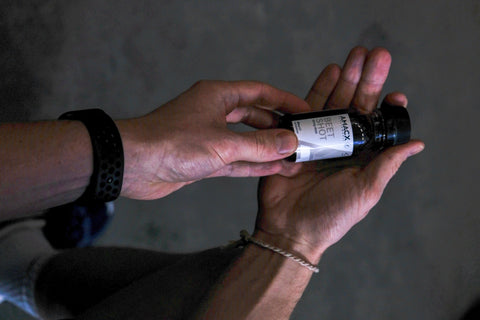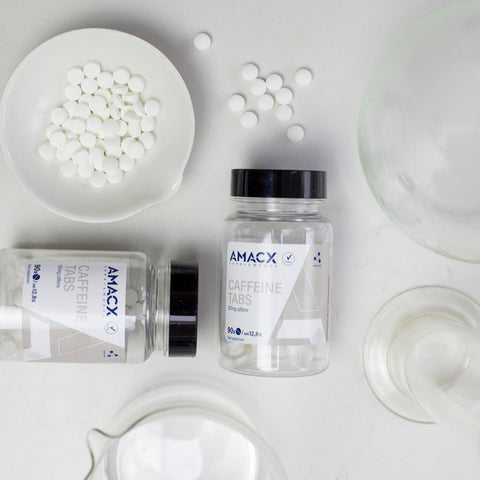- Beet juice is rich in nitrate, which after various conversions in the body is responsible for a number of positive physiological responses. This provides performance enhancement in a wide range of sports and endeavors.
- These effects are easily achieved by taking 1 Beet Shot (500mg nitrate) about 2 to 3 hours before the start of competition. Here it is important not to use antibacterial mouthwash or chewing gum.
- Highly trained athletes seem to be slightly less sensitive to these positive effects. For them it is therefore important to slightly increase the dosage and duration of intake. 1 to 2 Beet Shots per day, during a period of 3 to 7 days leading up to an important competition is therefore the advice for highly trained athletes.
What is the power of nitrate in beet juice?
Beet juice is rich in nitrate, the substance that is really all about potential performance enhancement. In addition to beet, green leafy vegetables such as arugula and spinach are high in nitrate. This nitrate is converted by bacteria in the mouth to the substance nitrite, which not much later is converted back to nitric oxide ("NO"). This substance plays a role in many processes in the body, including the regulation of our blood pressure, the contraction of our muscles and the functioning of the mitochondria (= 'power plants in the cells'). An increased NO concentration thus ensures better blood flow of (oxygenated) blood and more powerful muscle contractions. Also, the mitochondria work more efficiently, meaning they need less oxygen to deliver the same amount of effort, or a higher intensity can be achieved with the same oxygen uptake.
What are the benefits of consistent nitrate intake?
Thanks to these physiological effects, many studies also show effective performance enhancement, both in endurance sports and during shorter, intense efforts. This requires a dosage of at least 400 to 500mg of nitrate per day. This corresponds to 1 Beet Shot per day or +- 150 grams of nitrate-rich vegetables. However, since the amount of nitrate in vegetables varies greatly seasonally and depends on the soil from which it grows, you can never be sure of your exact nitrate intake this way. The amount of nitrate in our Beet Shot is standardized and controlled, ensuring you get what you need.
How much nitrate should I take?
The nitrate studies also show clearly that the level of training status seems to play an important role in the effectiveness of the supplement. The better a person's training status is, the smaller the effect of beet juice/nitrate seems to be. Especially for well-trained athletes, it is therefore advisable to opt for a relatively high dosage (800 to 1000mg). Also, this group can benefit from nitrate 'charging' by taking 1 to 2 Beet Shots daily for 3 to 7 days. Make sure that the last dose is always taken 2 to 3 hours before the start of your race to have maximum effect. Finally, make sure not to use any antibacterial mouthwash or chewing gum before/after you take the Beet Shot(s). Because the bacteria in your mouth are needed for the initial conversion of nitrate, the supplement loses its efficacy if these bacteria are killed shortly before or after ingestion.
Want to give Amacx Beet Shot a try? Find the product here.












